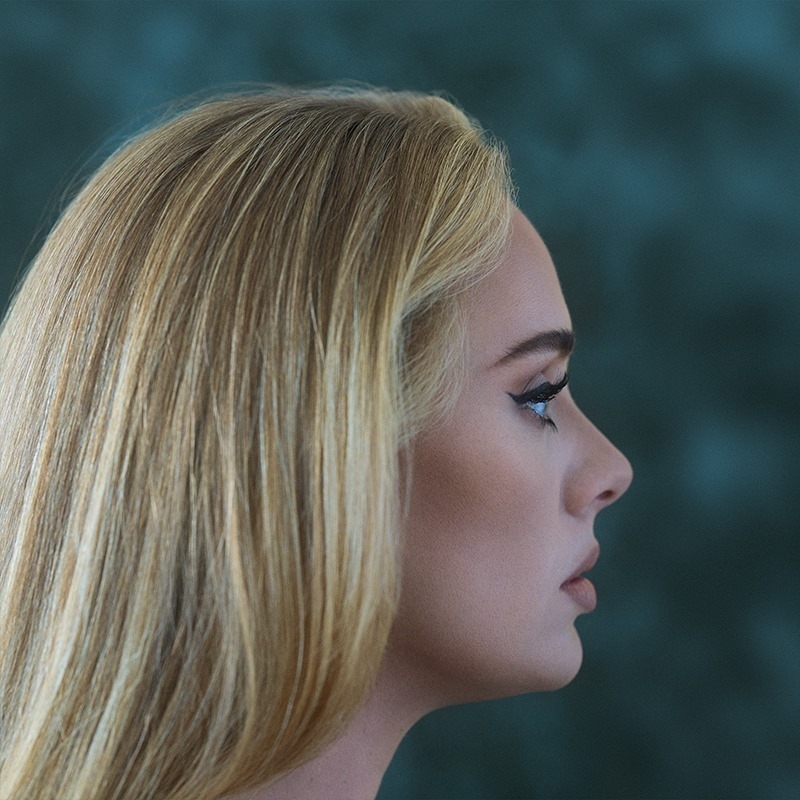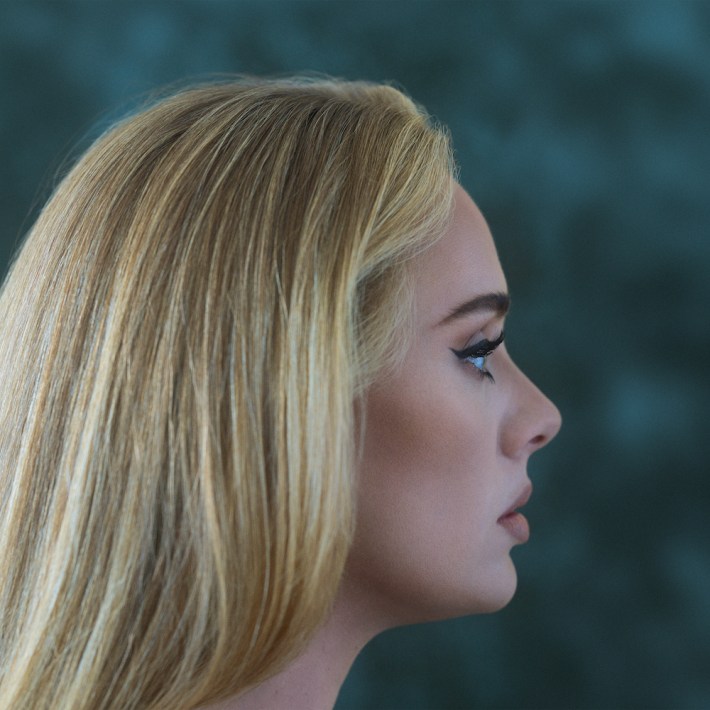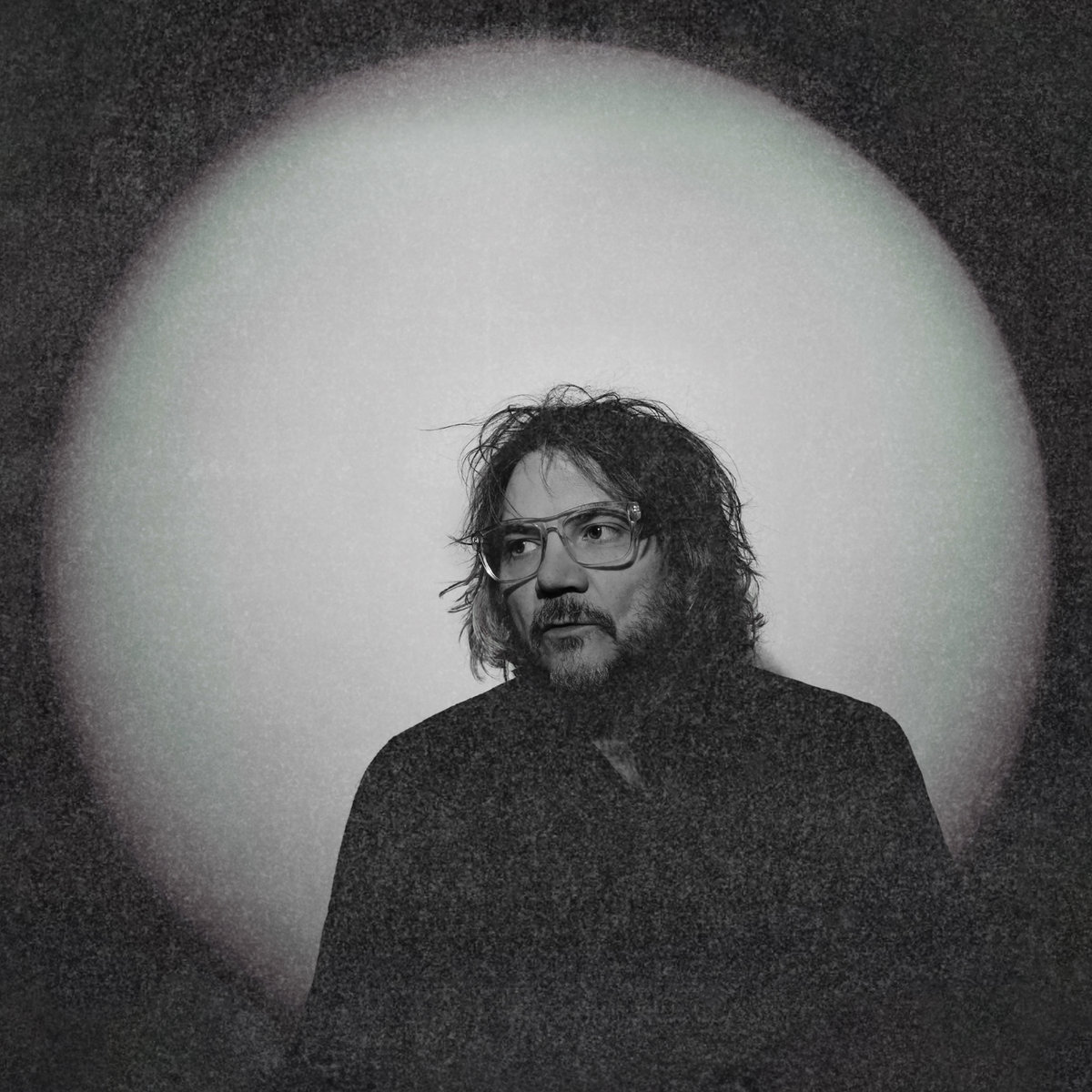- Columbia
- 2021
Maybe I'm saying this because I live in Adele's adopted city of Los Angeles, or maybe it's because people my age and younger really like horoscopes and birth charts, but: I'm pretty sure that I believe in the Saturn Return. I've never been that plugged into the planets, but the way Adele talks about Saturn Returns in interviews promoting her gut punch of a new album, 30, doesn't not make me a believer.
A Saturn Return, to which No Doubt also memorably dedicated their 2000 album, is when the titular ringed planet circles back to the same ecliptic longitude where it stood at the moment of your birth. Which is basically just some astrological gobbledegook to explain why people tend to go through major life shifts between the ages of 27 to 32. Take that for what you will. The point is, Adele has undergone a mammoth change, and 30, which follows 2015's bestselling 25, is a snapshot of her coming apart and piecing herself back together. As Adele succinctly put it on Instagram Live, 30 is mainly about "divorce, babe" -- specifically her divorce from Simon Konecki, with whom she shares a nine-year-old son, Angelo, and had been with since 2011.
Since around 2008, Adele has been breaking records (her 2011 sophomore album 21 remains the best-selling album of this century) and blowing minds with her tremendous voice and a knack for lyrics that feel both personal and universal. I've always liked Adele's music. Saying you don't like Adele is kind of like saying you don't like animals; those people exist, but I worry about them. 30 hit a little different, though. Because I guess you could say that I went through my own Saturn Return a few years ago, and it also included divorce.
Unlike Adele, we didn't share a child -- we barely shared a bank account -- but just the act of separating from a person you agreed to spend your entire life with, in front of all of your closest friends and family, is, and there is no elegant way to say it, a total mindfuck. Intellectually, you know that something like half of all marriages end in divorce, and just what makes you so special, anyway? And if those are the statistics, why do you still feel like such a loser? Say your life is a train traveling cross-country from New York to California, but right at Nebraska, you stand up and yank the emergency brake. You feel some impossible mixture of guilt, relief, depression, anxiety, excitement -- it’s all there, and you have no control over when you’re going to feel what, or for how long. Adele captures the entire spectrum on 30. And sure, you could argue that I relate because I, too, have experienced a divorce in my early 30s. But what makes Adele such a force -- still, all these years later -- is that I don’t think you have to have experienced a major separation to feel what she’s feeling here. She is unmatched at communicating raw emotion.
https://youtube.com/watch?v=QYh2c3g70XM
There is no dignity in divorce. It's a foghorn of perceived failure -- I say "perceived" because ending a marriage is NOT actually failure -- that makes you feel flayed alive, and you worry a lot that everyone else can see your internal organs. But on 30, Adele has curated a museum exhibit of her innards (sorry for the graphic visual). She wants you, her ex, her son, and herself to see that she is human after all, and humans are fallible.
30 opens on a mournful note as Adele sings, "I'll be taking flowers to the cemetery of my heart." Right on cue, organ swells over cinematic strings, and she says before the album clicks into gear, "All right then, I’m ready." Adele's at the top of a near-vertical rollercoaster drop. Hold your breath, because the next 11 tracks will require emotional Dramamine.
This is not at all to suggest that 30 lacks cohesion. If anything, it's Adele's most tenacious work to date. Earlier efforts felt more singles-minded by comparison, clearly anchored by Top 40 bonanzas like "Rolling In The Deep" and "Hello." In contrast, 30 is held together with both strong singles ("Easy On Me," "I Drink Wine"), a universal theme (divorce, starting your life over), slick production (courtesy of Tobias Jesso Jr., Inflo, Greg Kurstin, Ludwig Goransson, and Max Martin), and a willingness to play with genre. I don't think 30 houses another "Rolling In The Deep," "Chasing Pavements," or "Hello," but we are getting more of Adele the person than ever before.
A clear example lies within the R&B ballad "My Little Love," which features voice notes where Adele addresses her son and, at times, herself. "I wanted you to have everything I never had," she tells Angelo (what parent doesn't want better for their offspring?) before uttering an apology that their family unit has splintered ("I’m so sorry if what I’ve done makes you feel sad"). That would be enough, but later, Adele admits, "I feel like I don’t really know what I’m doing" and "I love your dad because he gave you to me." And then there are moments where she sniffles and sobs directly into phone, describing her newfound anxiety and loneliness ("I have a hangover, which never helps").
The mood extends on the snappy "Cry Your Heart Out," which promises catharsis if you just do as its title asks. ("It'll clean your face,” Adele intones with layered, manipulated vocals.) Soon, however,30 switches gears and tries on a slew of new sounds. The electronic "Oh My God" has a Moombahton rhythm (I immediately thought of Major Lazer, DJ Snake, and MØ's 2015 hit "Lean On"); "Can I Get It" is an acoustic guitar jam in the vein of George Michael’s "Faith"; and "All Night Parking" features feather-light piano tinkles, sampled from the late jazz great Erroll Garner. Ultimately, 30 ends how it began, with "Love Is A Game" moving back into the same type of orchestral composition as heard on opener "Strangers By Nature." At its core, 30 is another pop, jazz, and soul record, but it's also Adele's most adventurous album, expanding on the singer’s vocal and genre range.
https://youtube.com/watch?v=6hn8zMvdYzM
Case in point, the glass-shattering penultimate track "To Be Loved" is one of the most vocally ambitious songs I've ever heard. A bare-bones track — just Adele and a piano -- "To Be Loved" is in its simplest form about self-acceptance, about owning your missteps and choosing the healthiest path for you, even if it looks like failure to someone else. "I built a house for love to grow," Adele starts, outlining her hopes for a strong family unit, one she never had as a child. But in the end, she realizes, "To be loved and love at the highest count/ Means to lose all the things I can't live without." As she moves through "To Be Loved," Adele’s already soaring voice reaches its apex, cramming multiple notes into brief bars and pushing through anyway, triumphant. By the end, she is practically screaming, and now you feel what she feels. You understand her breaking point.
Nor is 30 one-dimensional: As with any major life transition, this record is rich and complex. In one particularly lusty track, the aforementioned "Can I Get It" (co-written with Max Martin and Shellback) finds Adele envisioning herself in throes of a new relationship. In "All Night Parking," Adele has actually found a new love, albeit a long-distance one (hey, everyone needs a rebound). "Woman Like Me" gives "breadwinner" vibes, with Adele chastising an insecure, kvetching partner whose "complacency" is "the worst trait to have." Still, she did learn something. "Loving you was a breakthrough," Adele concludes. "I saw what my heart can really do."
That’s another element to 30 that makes this an instant-classic Adele record. No matter what age she’s reached, Adele has a remarkable ability to learn, and hopefully grow, from her experiences. She isn't afraid to tell us that she's judged herself plenty of times, and made plenty of mistakes, but she's working on it. Making it an even sweeter experience for us, the audience, she communicates her findings articulately and with tenderness. If 25 had Adele gazing in the rearview, its long-awaited follow-up has the singer in a period of rebirth. After a blood-and-guts grieving process, the only thing for Adele to do now is hoist herself up, take a deep breath, and look to the future.
30 is out 11/19 on Columbia.







